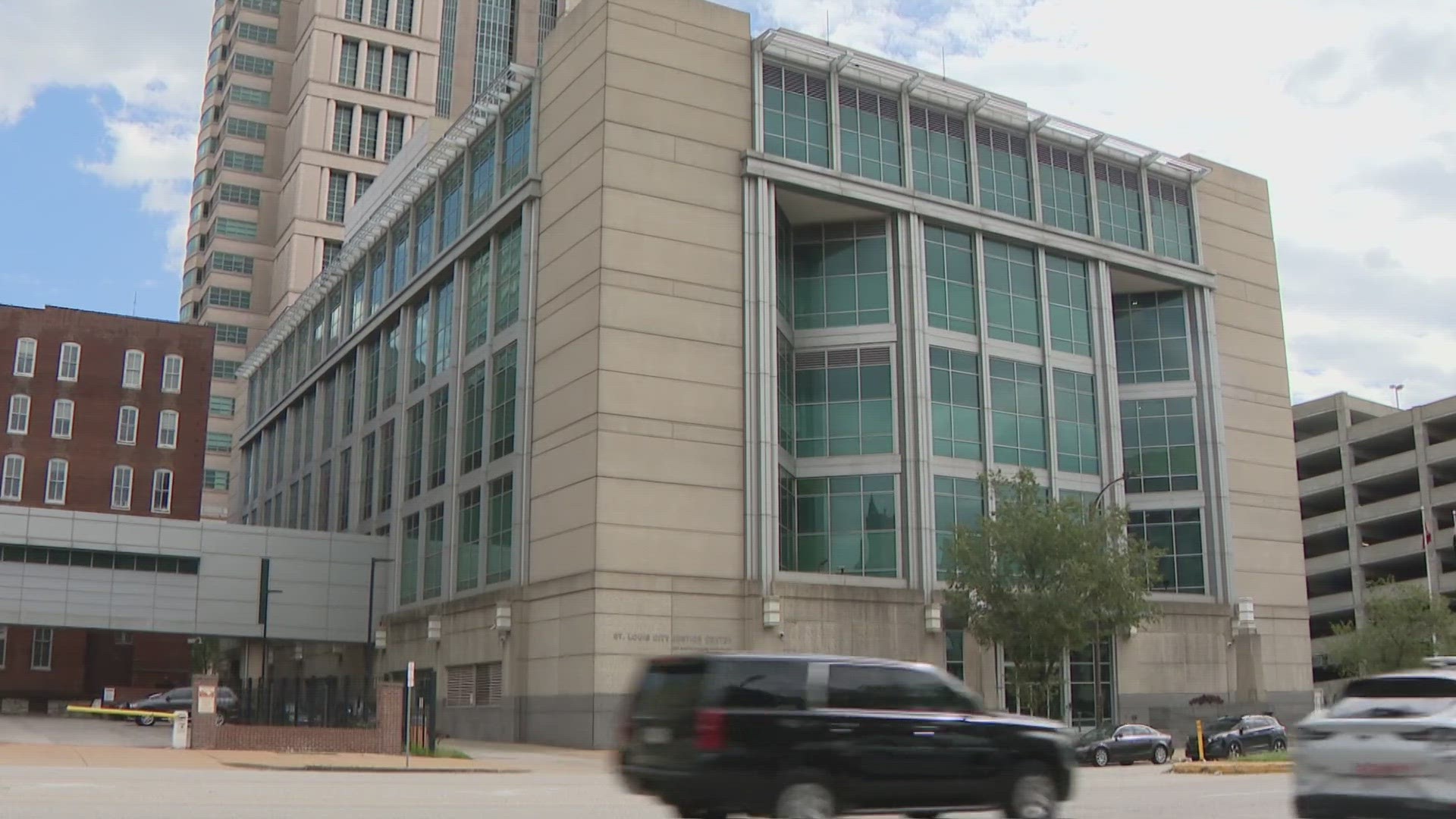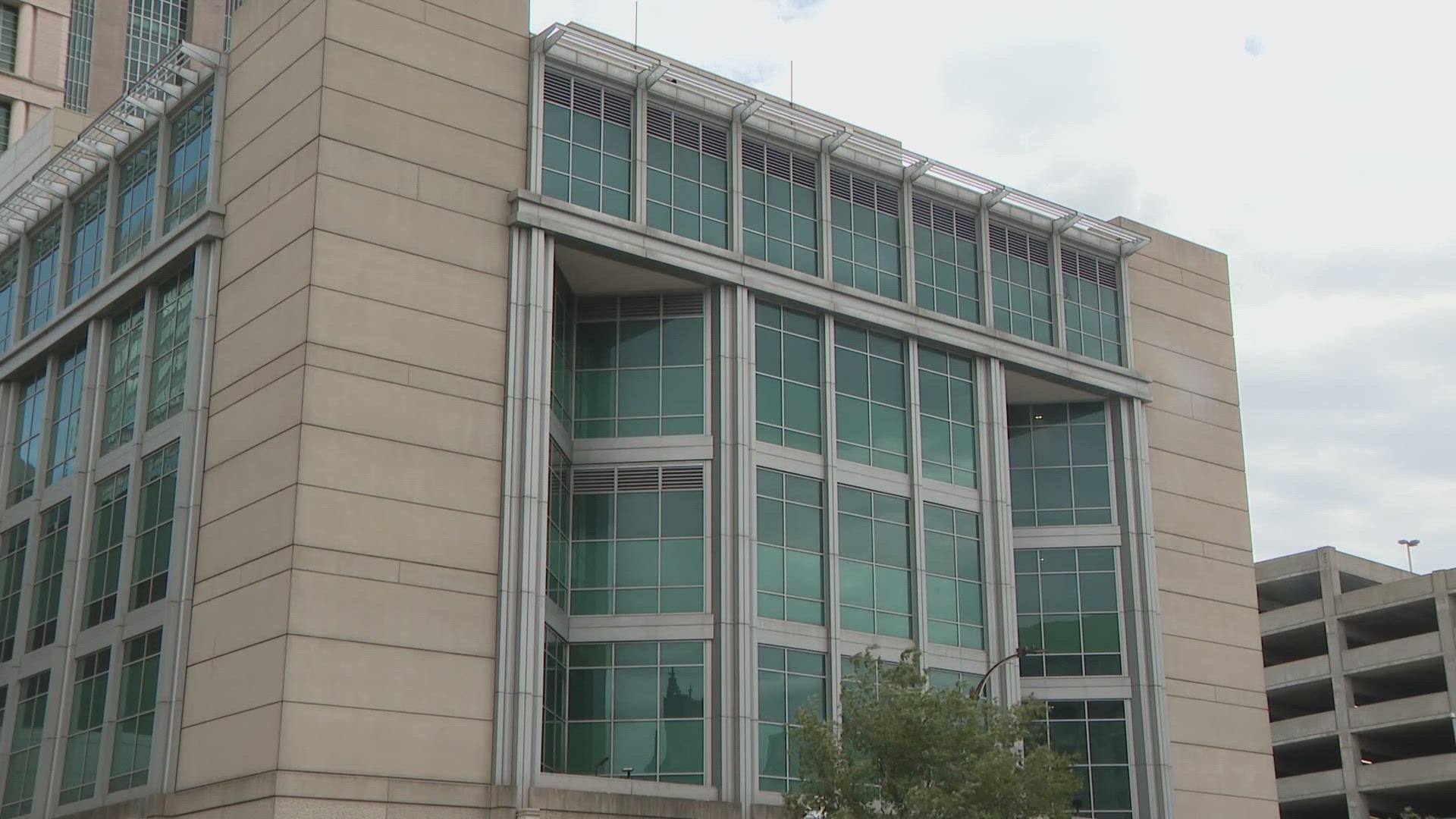ST. LOUIS — A 32-year-old inmate at the St. Louis City Justice Center died Aug. 20 from complications from diabetes. Still, medical records the medical examiner reviewed as part of his autopsy, showed the inmate may have been unaware he had the disease.
Carlton Bernard’s cause of death is listed as diabetes mellitus, complicated by ketoacidosis and hyponatremic dehydration with blood and vitreous ketones present as well as hepatic hemangioma, according to the autopsy report.
The conditions are due to a specific type of dehydration caused by the body’s own effort to combat the effects of a diabetic episode, said St. Louis Medical Examiner Dr. Kanayo Tatsumi.
“He (had) hyponatremic dehydration due to low sodium,” she explained. “In his electrolyte analysis, his sodium was low and chloride was low. So he had a loss of fluids because glucose when elevated, can drive water to leave the body.”
And diabetes exacerbates the problem, she said.
“So unfortunately, dehydration doesn’t mean we weren’t given water,” she said. “There’s different kinds of dehydration. It’s not the type of dehydration you would see if somebody was withheld water. So, was he dehydrated? Yes, from a medical standpoint, but I worry that it is being interpreted differently, especially by those not in the medical community.”
"I mean who responded? Did the correctional officers respond? Did a healthcare provider respond ... Those hard questions have got to be asked. ..It's your responsibility to make sure they didn't die," Pam Walker with the city's Detention Facilities Oversight Board said.
Mayor Tishaura Jones created the board to advise her and jail and law enforcement officials regarding operations, conditions and policies.
Bernard is one of 10 inmates who died at the hospital while in custody of the CJC within the past two years. He’s one of three who have died within the past few weeks.
The deaths have thrust the city’s medical care at the jail into the spotlight, and Mayor Jones announced this week she is creating a new chief medical officer position to improve care there.
The city already pays a private contractor to handle medical care for inmates. But that company has declared bankruptcy and the city is suing it to recoup about a $500,000 settlement with the family of an inmate who died in 2014.
Jones’ spokesman Nick Dunne told 5 On Your Side Friday that the city’s chief medical officer and staff and the private healthcare contractor would “work in tandem on ensuring detainees receive healthcare.”
The request for a proposal for a new healthcare provider has a start date in December.
Meanwhile, the Board of Estimate and Apportionment approved $2 million to fund Jones’ plan to hire the chief medical officer and staff.
Board of Aldermen President Megan Green is on the committee and voted in favor of the idea.
She called the creation of the new position “a step in the right direction" during a press conference Friday, but is continuing her call for an “immediate change in leadership” at the CJC.
“I think that what we are learning from the deaths at CJC and some of the autopsies that are coming available is that we need greater attention on the medical system at that facility,” Green said.
Walker says the oversight board was not contacted to weigh in on the new plan.
"We need something more immediate. There needs to be someone in there now looking at what is happening and making sure that changes are made now ... proper diagnosis, treatment, immediate response to complaints, looking at the data to see what the chief complaint is and whether it's getting addressed property. Those things need to be happening now. Don't wait until we get 11 people hired," Walker added.
As part of every autopsy she conducts, Tatsumi said she collects as many medical records on a patient as possible.
And Bernard didn’t have many, she said.
“From my review of his medical records, he did not have a history of diabetes and I did not see any medical records indicating he came in with a diagnosis of diabetes,” she said. “It’s not in the realm of being uncommon for a first-time presentation to be this detrimental. His medical records from the center show that he did not have a medical history prior to intake at the center.”
It’s hard to pin down what came first, the dehydration or the ketoacidosis because in diabetics, one can cause the other, she said.
“With hyponatremic dehydration, it’s difficult to see if it’s the chicken or the egg,” she said. “If you are dehydrated from something else like vomiting or diarrhea, that could push you into ketoacidosis, or elevated levels of sugar can make you dehydrated because elevated glucose pulls water out of the body.”
Tatsumi said Bernard’s death from a treatable disease he may not have known he had exposes a different societal issue.
“This situation reflects the inequity of care for people who might not have regular checkups to see if there are any deviations,” she said. “And I think it’s part of a complicated social contract.”
"The city justice center is a place where you're supposed to hold people and treat them safely and treat them humanely while they're awaiting trial...It's not a place people should go to die," Walker said.


